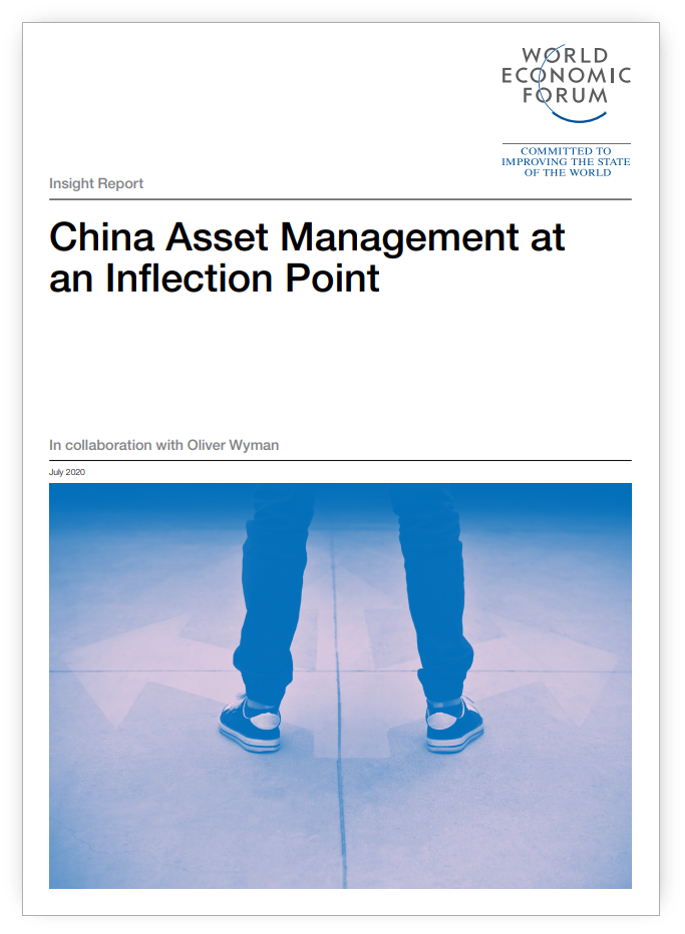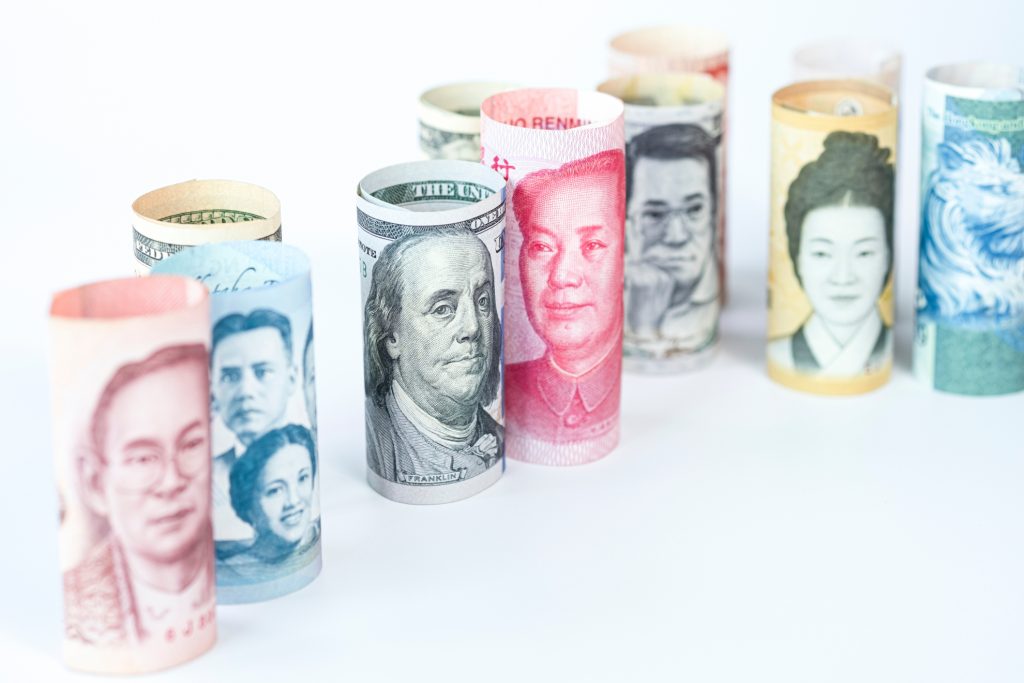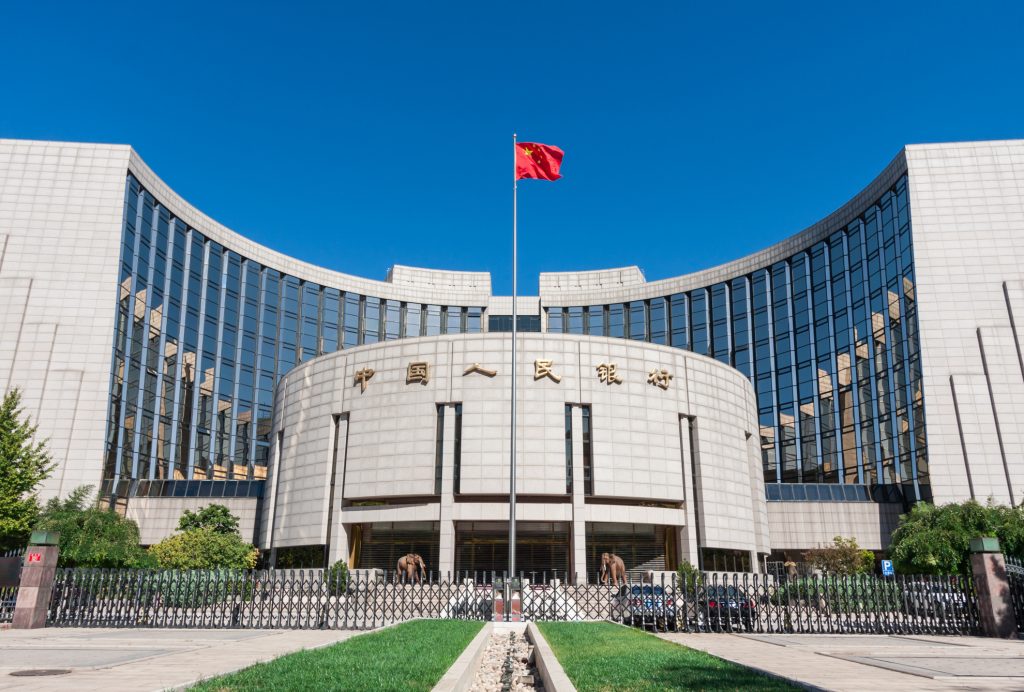World Economic Forum Insight Report : The renminbi and China’s capital markets
13-07-2020
 Continued growth in China’s asset management industry on the back of economic development and wealth accumulation, coupled with industry transformation, presents enormous opportunities for both domestic and foreign asset managers to drive innovation. A group of experts and financial system leaders convened by the World Economic Forum prioritized several dimensions that will have a far-reaching impact on the industry and published an Insight Report titled China Asset Management at an Inflection Point. Our Co-Chairman and Co-Chief Investment Officer Dato’ Seri Cheah Cheng Hye joined Mr. James Fok, Strategic Adviser of London Metal Exchange to co-write an essay on Renminbi and China’s capital markets (Page 11-12).
Continued growth in China’s asset management industry on the back of economic development and wealth accumulation, coupled with industry transformation, presents enormous opportunities for both domestic and foreign asset managers to drive innovation. A group of experts and financial system leaders convened by the World Economic Forum prioritized several dimensions that will have a far-reaching impact on the industry and published an Insight Report titled China Asset Management at an Inflection Point. Our Co-Chairman and Co-Chief Investment Officer Dato’ Seri Cheah Cheng Hye joined Mr. James Fok, Strategic Adviser of London Metal Exchange to co-write an essay on Renminbi and China’s capital markets (Page 11-12).
It appears that central bankers have finally met their match in COVID-19. As governments have reluctantly grasped the baton and released an unprecedented wave of fiscal stimulus, many of us are now wondering: what next?
The bill for years of quantitative easing and fiscal profligacy will ultimately have to be paid. The US government deficit had already been budgeted to exceed USD 1 trillion in 2020; wi
th the loss of economic activity and further fiscal stimulus stemming from COVID-19, that number will well exceed USD 3 trillion.
In anticipation of further debasement of fiat currencies, gold has surged, while cryptocurrencies such as bitcoin have been claiming a larger audience. Both of these options, however, have serious shortcomings as currencies for global trade and investment.
Has the renminbi’s time now come?
 There are good reasons for China to shy away from this role for its currency. While the dollar’s status has allowed the US to fund its vast fiscal deficits at extremely low rates, this has come at the expense of control of its foreign exchange rate. For a government that derives political legitimacy from its ability to deliver stability and consistent economic growth, this would be a huge risk – as highlighted by Japan’s experience following the breakdown of Bretton Woods.
There are good reasons for China to shy away from this role for its currency. While the dollar’s status has allowed the US to fund its vast fiscal deficits at extremely low rates, this has come at the expense of control of its foreign exchange rate. For a government that derives political legitimacy from its ability to deliver stability and consistent economic growth, this would be a huge risk – as highlighted by Japan’s experience following the breakdown of Bretton Woods.
In addition, China’s closed capital account affords the Chinese government significant influence over both access to China’s market and the flow of its citizens’ capital. These are huge levers of geoeconomic power in China’s international policy.
Nevertheless, China faces some tough realities. China today finds itself in a similar position to the US in the 1970s; its ageing demographics and shift away from an export-led economy mean it faces steepening current account and fiscal deficits for the foreseeable future. Unless it can expand international demand for its sovereign debt, continued growth in Chinese prosperity is by no means assured.
Full renminbi convertibility would certainly help expand this demand, but the deck remains stacked against China. The international regulatory framework governing global financial institutions still assigns much greater risk weightings to Chinese securities, making them much more capital intensive to hold. Illiquidity exacerbates this problem, since Chinese securities are not widely accepted as collateral in international markets.Even if international investors are willing to buy more Chinese credit, therefore, they will demand substantially higher interest rates.
Why would the West be willing to facilitate renminbi’s rise?
 China’s vast domestic pool of capital would be one huge attraction. With its citizens’ bank deposits sitting at USD 28 trillion, China represents the largest u
China’s vast domestic pool of capital would be one huge attraction. With its citizens’ bank deposits sitting at USD 28 trillion, China represents the largest u
ntapped pool of capital in the world. As China’s recently minted middle classes turn to the capital markets to generate the returns to support their post-retirement lifestyles, China’s own markets will struggle to absorb this and international businesses are eager to access this renminbi funding.
Facilitating such “portfolio” flows would also be far more palatable for countries receiving Chinese investment. Hitherto, the vast majority of Chinese outbound capital flows have taken the form of foreign direct investment by China’s (largely statecontrolled) corporate sector, which raises concerns, including the level of state influence, technology transfer and the export of local jobs. Thousands of “Mrs Wangs” each buying a few shares in overseaslisted companies should raise no such concerns.
Many recognize that the overwhelming dominance of the dollar comes at a cost. Dollar supremacy has created a huge concentration risk, and the ripple effects of periodic dollar volatility can have devastating consequences for emerging markets forced to borrow in the greenback. Moreover, dominant positions in any market generally lead to abuses: a greater balance in the mix of currencies for trade and global finance would help reduce such risks.
A major driver of the dollar’s rise to dominance was the US’s role as the largest oil importer. That mantle has since passed to China, while the shale oil revolution has restored the United States’ status as a major oil exporter. The uncomfortable truth is that stability in the Middle East today is far more economically important to China than to the US, which may appreciate being able to reduce some of its foreign commitments. In return, China would seek to pay for its energy imports in its own currency, while exporters would need a deeper international pool of renminbi assets to deploy the proceeds.
The practical challenges for China in allowing its citizens to partake in international capital markets lie in being able to moderate the pace of flow to avoid global economic disruption from a “big bang” event; ensuring appropriate levels of transparency to prevent large-scale tax evasion; and avoiding exposure to foreign financial sanctions. The Stock and Bond Connect programmes pursued with Hong Kong have largely addressed the first two challenges. The third remains unresolved; Chinese outbound portfolio flows today would be wholly dependent on a Western-controlled global custody network, leaving it heavily exposed to the type of financial sanctions that have been applied to Russia and Iran.
Notwithstanding the mutual interests at stake, frameworks of trust need to underpin any such changes, and this appears to be in short supply. Nevertheless, with the right regulatory framework and financial market infrastructure, these challenges can be overcome. While Hong Kong’s image has no doubt been tarnished by the events of the past year, its role as a bridge between China and
international markets looks set to endure, and may yet prove highly valuable in the renminbi’s evolution.
The question of whether the renminbi will eventually “usurp” the dollar is, perhaps, the wrong question. The more important and immediate question is the greater international role for China’s currency and capital markets, commensurate with its economic success and status. Properly managed, this could bring a better economic and geopolitical balance to the world.
As COVID-19 draws growing speculation about globalization’s retrenchment, we should all hope that China is willing to engage, for this is not just about economics: increased financial and economic integration is our greatest guarantee of international peace.
*Source of the article: <Insight Report: China Asset Management at an Inflection Point>
>> Read full report
Read More
The views expressed are the views of Value Partners Hong Kong Limited only and are subject to change based on market and other conditions. The information provided does not constitute investment advice and it should not be relied on as such. All materials have been obtained from sources believed to be reliable as of the date of presentation, but their accuracy is not guaranteed. This material contains certain statements that may be deemed forward-looking statements. Please note that any such statements are not guarantees of any future performance and actual results or developments may differ materially from those projected.
Investors should note that investment involves risk. The price of units may go down as well as up and past performance is not indicative of future results. Investors should read the explanatory memorandum for details and risk factors in particular those associated with investment in emerging markets. Investors should seek advice from a financial adviser before making any investment. In the event that you choose not to do so, you should consider whether the investment selected is suitable for you.
This commentary has not been reviewed by the Securities and Futures Commission of Hong Kong. Issuer: Value Partners Hong Kong Limited.




